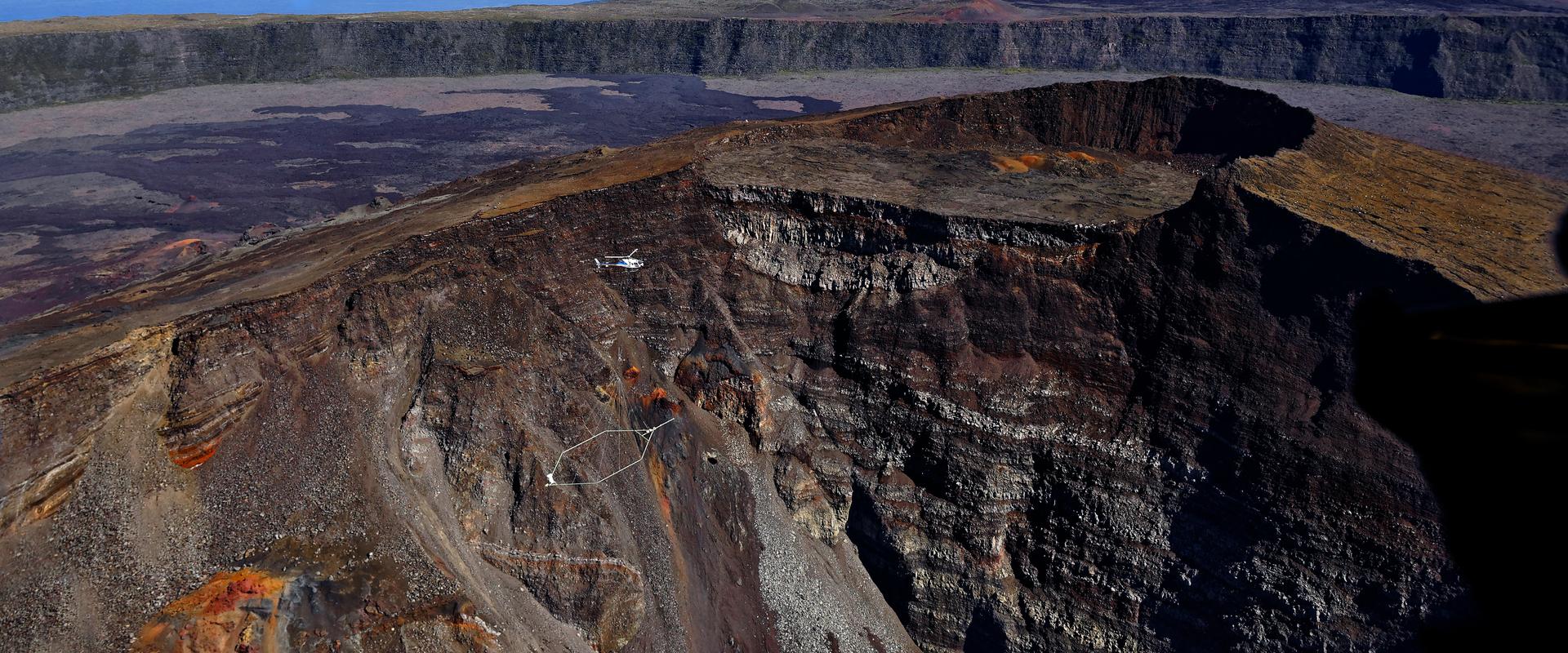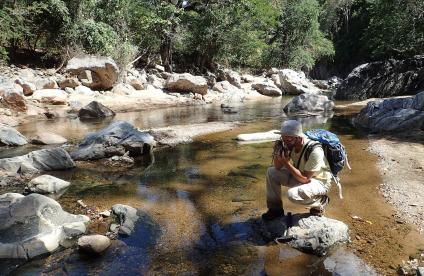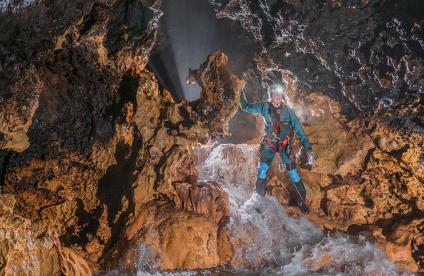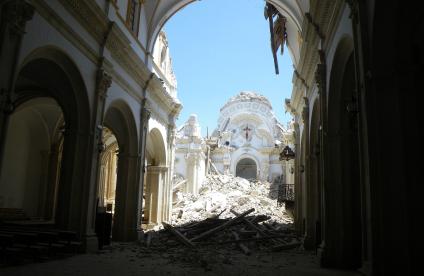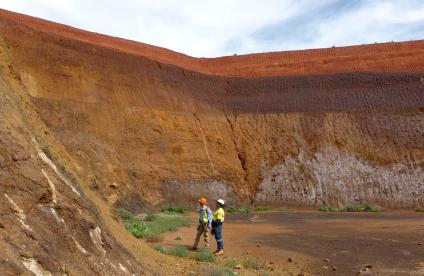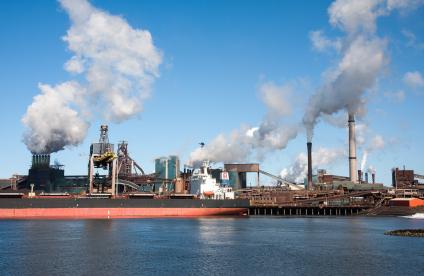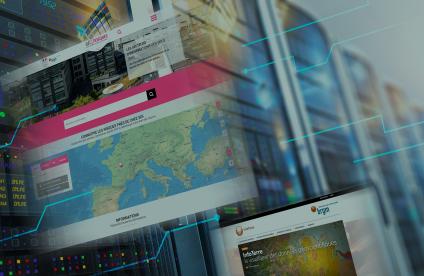Responding more effectively to socio-economic challenges involving the surface and subsurface while ensuring better continuity between research, expertise and innovation among public authorities and businesses: these are the main challenges that BRGM has set for itself with its scientific strategy. It defines the French geological survey's research priorities for the next decade, in order to address major socio-economic issues in which the surface and subsurface play a key role.
BRGM’s scientific strategy, with its six key objectives, aims to ensure a clear understanding of its actions. It is organised into key fields of application and cross-cutting missions.
The BRGM, a public industrial and commercial institution working under the supervision of the Ministries responsible for Research, the Environment and Mining, is also committed to the State through its objectives and performance contract, which defines the main actions carried out by BRGM over the period 2018-2022.

Science strategy for BRGM: key research priorities for the next 10 years
Geoscience in response to global challenges
BRGM's scientific strategy sets out the main research orientations, in order to address major socio-economic issues in which the surface and subsurface play a key role.
It is based on the main global challenges where geosciences have a crucial role to play in the coming years, such as climate change, anthropogenic pressure on the environment and urban growth. BRGM's scientific strategy is in line with the United Nations' 2030 Agenda for Sustainable Development, several of whose goals directly concern BRGM: access to clean water and sanitation, use of clean energy, innovation and infrastructure, sustainable cities and communities, responsible consumption, and climate action.
A science programme designed to address six key objectives
BRGM's scientific positioning is now built around six major objectives.
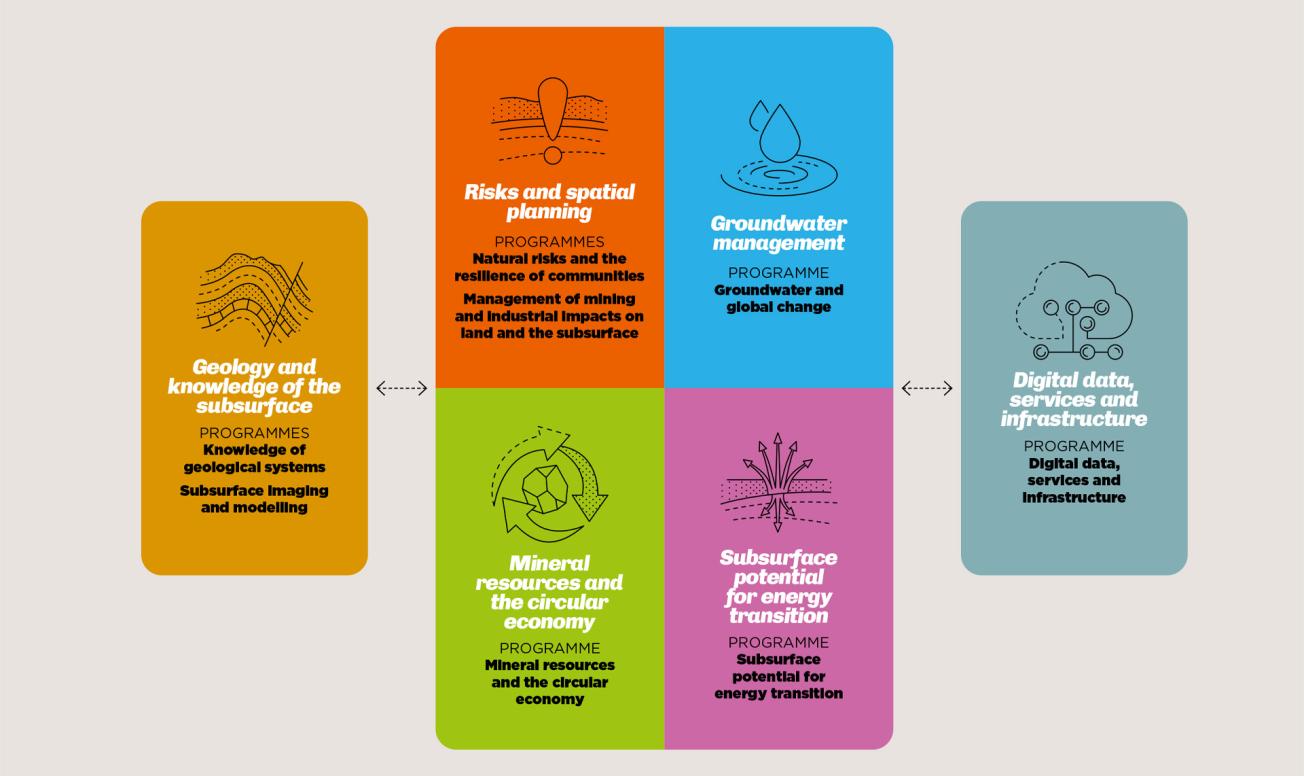
The 6 challenges of BRGM's scientific strategy.
© BRGM
Two cross-cutting objectives
Geology and knowledge of the subsurface
Our main objective as a national geological survey organisation is to acquire geological information. This information needs to be constantly updated to keep pace with new observations and improvements in technologies and scientific concepts.
Digital data, services and infrastructure
Managing and processing surface and subsurface data have become a key issue for any geological survey organisation. Because most BRGM data are acquired with public funding, it is essential to disseminate them more widely, in accordance with open science policies in France and Europe.
Four specific objectives
Groundwater management
Groundwater management is becoming a crucial issue because water tables are increasingly subject to the twin pressures of abstraction for human consumption and climate change, which is significantly disrupting recharge parameters. Increasingly efficient monitoring tools are needed to predict changing qualitative and quantitative trends in water resources.
Risk management and spatial planning
Regional risks and spatial planning require the management of natural risks and regional vulnerabilities as well as monitoring and assessing risks arising from former industrial and mining activities, with a view to contributing to sustainable and optimised regional development.
Mineral resources and the circular economy
The circular economy is steadily becoming established in France and Europe. BRGM is one of the few institutions capable of covering the entire field of research and innovation concerning the availability of primary mineral resources in relation to their life cycle.
Subsurface potential for the energy transition
Finally, the energy transition is set to profoundly change our energy systems with more decentralised modes of production, in which the subsurface can become a significant component. In this context, the development of geothermal energy and underground storage of energy or CO2 are technologies with high economic and innovation potential.
Our 6 major challenges

The State-BRGM objectives, resources and performance contract for 2023-2027
BRGM is a public industrial and commercial institution working under the supervision of the Ministries responsible for research, the environment and mining.
The State-BRGM objectives and performance contract reflects the vision shared by the French Government and BRGM for implementing our strategic policies. It will guide the institution's activities for the period 2023-2027.
3 key goals for 2023-2027
Structured around 3 main goals, it sets 13 objectives and 31 actions to be undertaken:
Goal 1: Carry out an ambitious scientific policy for the acquisition of new knowledge in order to be able to respond more fully to societal challenges
This goal aims to stimulate and consolidate its scientific activity and strengthen BRGM's role in the research and innovation ecosystem in order to make a decisive contribution to mitigating and adapting to climate change, as well as to the key role of the subsurface in energy and ecological transitions.
It describes the actions relating to the institution's scientific policy, its breakdown into scientific programmes, its partnership strategy and its digital strategy. Actions aim in particular at improving the management of scientific knowledge and expertise in the medium term, and especially at increasing the number of young doctoral and post-doctoral students.
Goal 2: Develop BRGM's impact on society through its science, innovation and expertise
The aim is to strengthen BRGM's impact on society, in particular through expert appraisal with high scientific added-value for the State and local authorities, but also to increase the dissemination of environmental information to civil society and citizens.
This means strengthening synergy when research results are transferred to ensure expert appraisal at the highest level.
Goal 3: A management system committed to sustainable development, modernised and simplified to strengthen its economic model and resources
This last goal reflects the desire to modernise and simplify processes and tools to ensure greater efficiency in operating and managing the institution. Actions will include optimising financial management and reducing the institution's carbon footprint.

BRGM’s open science policy 2022
BRGM, the French geological survey, is a leading national and European player in the field of science and information on ground and the subsurface and its resources. It plays an increasing role as a widely acknowledged centre for ground and subsurface data both for the French Government and for European infrastructures such as the European Plate Observing System (EPOS) and the European Geological Survey Alliance EuroGeoSurveys and international ones, in particular for OneGeology.
As the manager of a very large number of open-access databases, which are part of its public-policy support activities, it is committed to sharing the results of its research activities as much as possible.
BRGMs open science policy aims to standardise practices at the level of the institution and to accelerate the process in all the scientific fields covered by the French geological survey.

